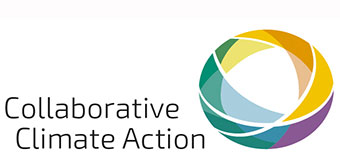Recover Green – Higher NDC Ambition through Collaborative Climate Action
Event Summary
On 16 July 2020, GIZ and the Partnership for Collaborative Climate Action hosted a virtual launch event of a Discussion Paper on how to increase ambition in NDCs through Collaborative Climate Action, titled Recover green: Higher NDC-Ambition through Collaborative Climate Action. The paper contains recommendations on engaging the subnational level in the NDC enhancement process and outlines the unique opportunity that post-COVID19 recovery packages present for stronger climate action.
A wide variety of speakers offered insights on the opportunities that Collaborative Climate Action offers for more ambitious climate action on all levels of government:
Carmen Vogt, Head of the section Cities at GIZ, set the scene by outlining the importance of cities in generating economic value but also their importance in the fight against climate change. She also stressed the necessity of a green recovery from the COVID-pandemic and how cities can contribute to this goal.
Petter Lydén, Lead Author of the discussion paper and Advisor in the GIZ project Climate Policy Meets Urban Development (CPMUD), then presented the paper. One of the main recommendations in the paper is to engage subnational government in the design of NDCs through strengthened dialogue between national and subnational governments, for example through stakeholder consultations.
Herman Hakuzimana, Director of Climate Change and International Obligations at the Rwanda Environmental Management Authority, offered insights from the NDC update process in Rwanda. The country was among the first to offer an updated NDC which includes several references to the subnational level. He presented facts and figures on emission reduction targets in the updated NDC, as well as and figures on investment needs.
Mattias Frumerie, Head of the Swedish Delegation to UNFCCC, then spoke about Swedish national and subnational climate initiatives to support local climate action. Among others, the initiative Fossil Free Sweden brings together business actors and local governments in a shared vision to make Sweden fossil free by 2045. The initiative highlights how the cooperation between different (subnational) actors can inform a more ambitious climate policy.
Yunus Arikan, Head of Global Policy and Advocacy at ICLEI World Secretariat, as well as Focal Point of the LGMA Constituency to the UNFCCC, shared his insights on the importance of collaboration on climate issues among all levels of government. He commented on the inputs form Sweden and Rwanda from the perspective of a local government network and voiced a strong call to make COP26 in Glasgow a “Multilevel Action COP”, supporting the important role local governments are increasingly taking in ambitious climate action.
Constanze Böning, Project Director CPMUD, moderated the event, including the ensuing Q&A session, where the participants of the launch event were very interested in the concrete involvement of subnational actors in the updated Rwandan NDC. Herman Hakuzimana outlined the process of prioritising ongoing subnational plans, in order to select measures for the NDC.

